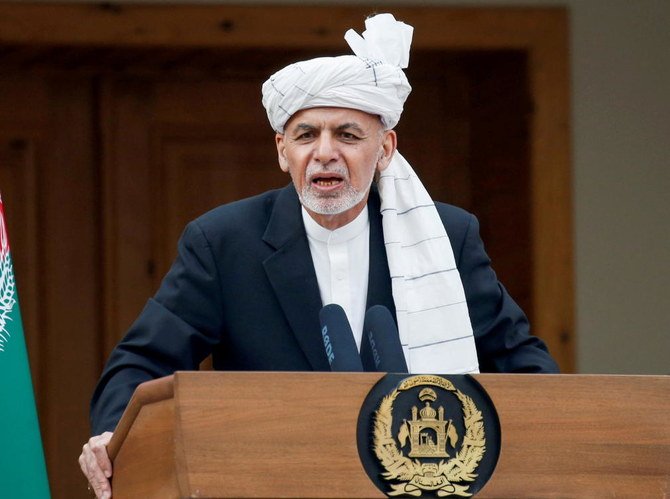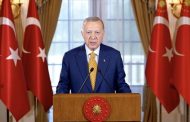Afghan President Ashraf Ghani began a visit to Washington Thursday at a time when the Taliban movement is making tremendous progress across the country.
There are fears that the already frustrated Afghan security forces will be quickly overrun when the remaining US forces withdraw. Peace talks between the Taliban and the Afghan government are still stalled.
Kyiv. Ukraine. Ukraine Gate – June 26, 2021 – Diplomatic Affairs
Here are some questions and answers about the situation on the ground, and the implications for Afghanistan:
The Taliban took advantage of the final stages of US troop withdrawal and made massive advances across the country, claiming control of more than 80 of the country’s 421. counties.
Just this week, the rebels captured Sher Khan Bandar, Tajikistan’s main northern border gate.
The Taliban say Afghan forces regularly lay down their weapons or abandon their positions without a fight, although the government’s recognized tactic is to abandon isolated positions at night to better defend more strategic and central positions.
In turn, the Taliban forces dissolve in broad daylight.
But when the two sides fought, the Afghan forces suffered horrific losses.
Ghani has introduced the changes – appointing a new chief of the armed forces and defense minister in recent days – but analysts note the playing cards are running out.
However, the end game is not certain.
“The Taliban are strengthening their noose around the major cities. “It’s not necessarily in the near future they’re going to try to take those cities,” said Andrew Watkins of the International Crisis Group.
The fall of Kabul is not imminent. The Taliban is not an unstoppable military force.”
Insiders and officials paint a picture of Ghani as increasingly unfriendly, out of touch, and isolated in the presidential palace in the heart of the heavily fortified Green Zone.
“He only listens to three or four people, including his chief of staff and his national security adviser — and of course his wife,” said a Western diplomat.
“There is the phenomenon of traditional courts, but there is also the personal factor of Ghani, who is suspicious of everyone.”
Ghani is pressing the Taliban to accept a role in some kind of interim unity government so that elections can take place.
But the insurgents, emboldened by their battlefield gains, seem uninterested in further negotiations and are intent on taking full control and returning Afghanistan to a principality ruled by religious sheiks based on Islamic principles.
They’ve recently made several statements about how they will judge – in general, but few specifics.
They say that the rights of women and girls would be compatible with Quranic teachings, but their interpretation of Islam is more conservative than elsewhere.
“There are reasonable accounts to believe that they may have become more radical over the years and are fighting non-Muslim foreign forces,” said Sayed Nasir al-Moussawi, a Kabul-based political analyst.
“The Taliban’s efforts to portray themselves as an effective (force) capable of ruling Afghanistan and granting women and minorities their rights are deceptive.”
Anyone with the means formulates an escape plan and several officials have already moved their families out of the country – with Turkey being the most preferred direct destination.
The United States and other NATO countries are scrambling to provide visas to Afghans who have worked with foreign forces over the past two decades as fears grow that the Taliban will punish them as traitors.
The Taliban insists there will be no punishment if they “show remorse”, and say they will ensure the safety of diplomats and aid workers.
However, they are not widely trusted. Few have forgotten how they killed 11 people – mostly diplomats – after storming the Iranian consulate in 1998, and also killed former President Mohammad Najibullah after he was kidnapped from UN custody two years earlier.
Many Afghans just want to end the fighting after decades of war. The last sustained period of peace was in the 1960s, a time many call the “golden age”.
“Everyone wants peace,” said Mary Akrami, executive director of the Afghan Women’s Network.
“Most of the Afghan people have not had the chance to live in peace.”
Read Also: The Pentagon Delayed the Withdrawal of Troops From Afghanistan
Source: Ukrgate







